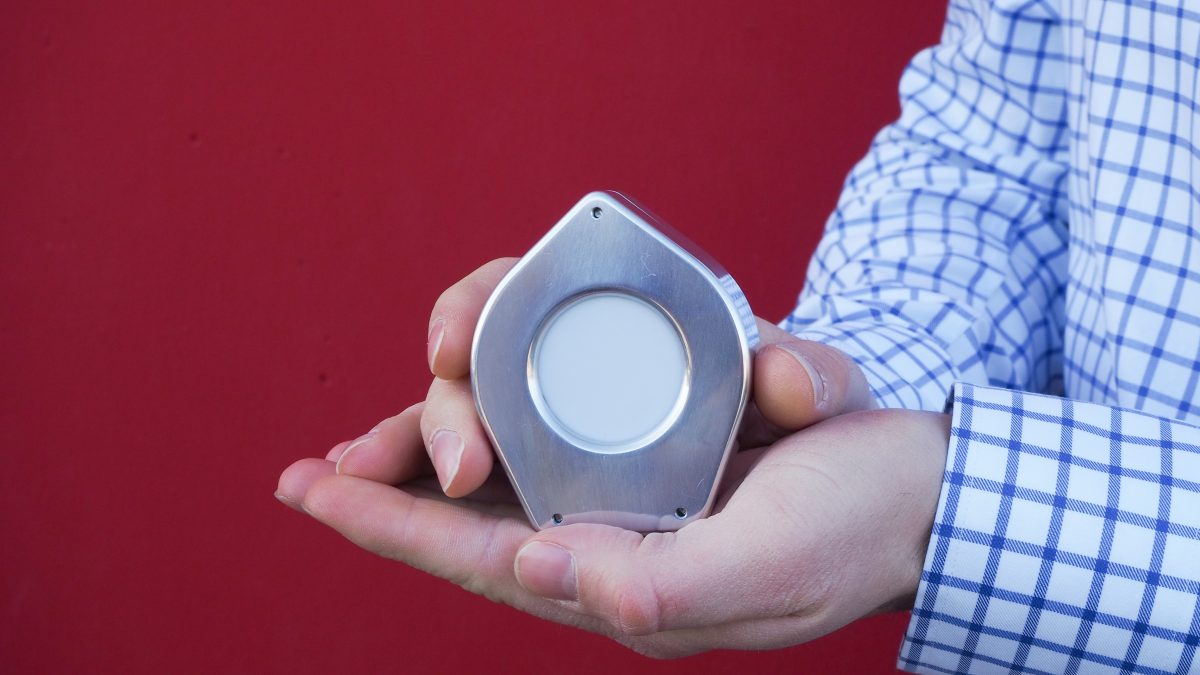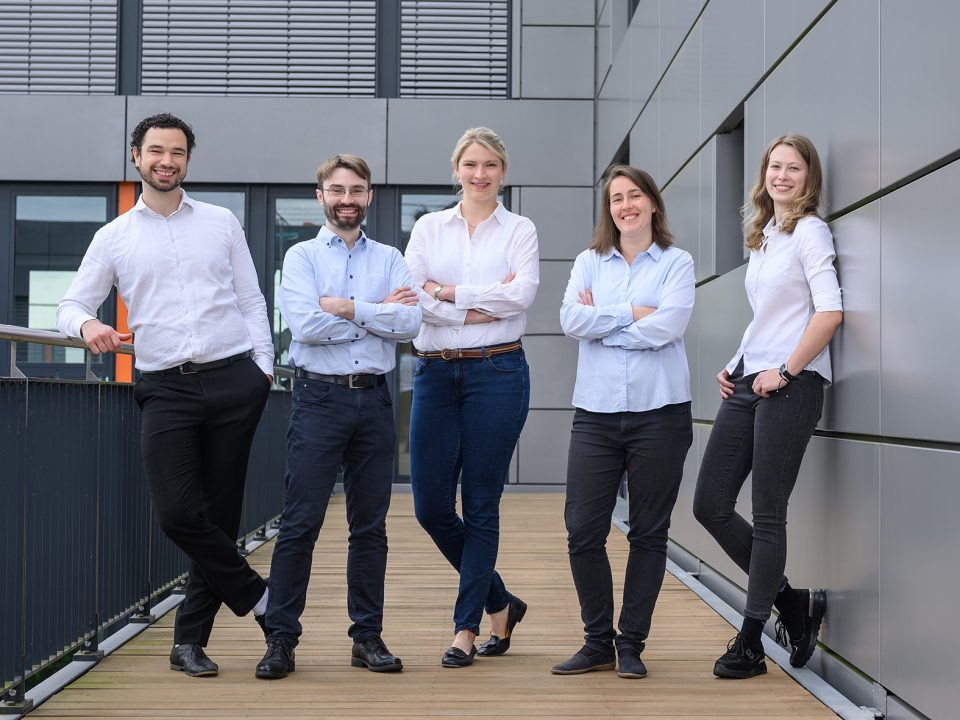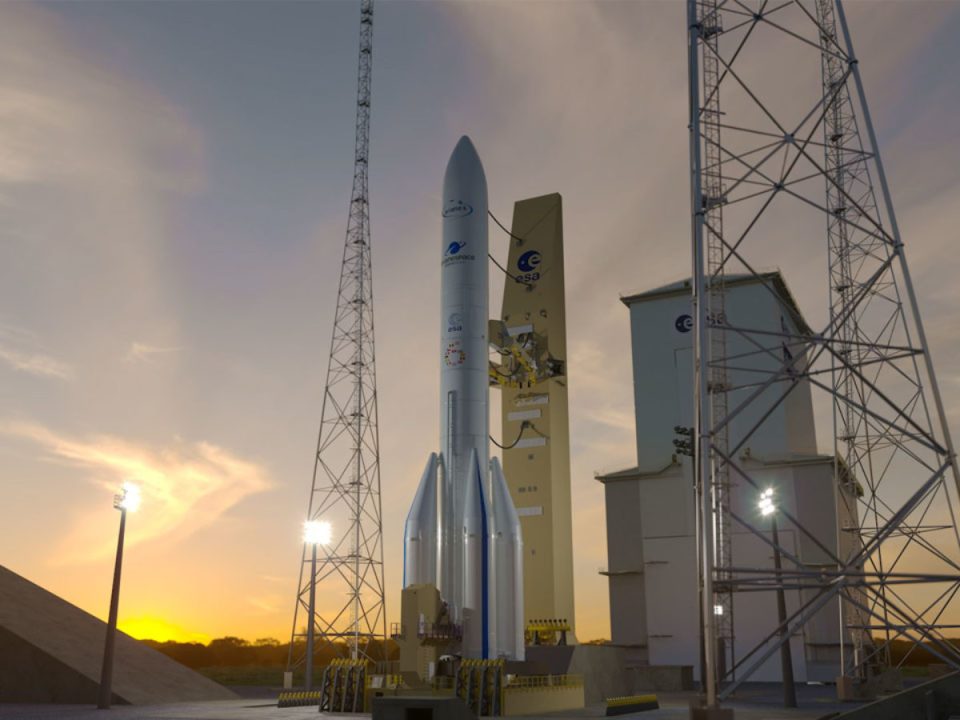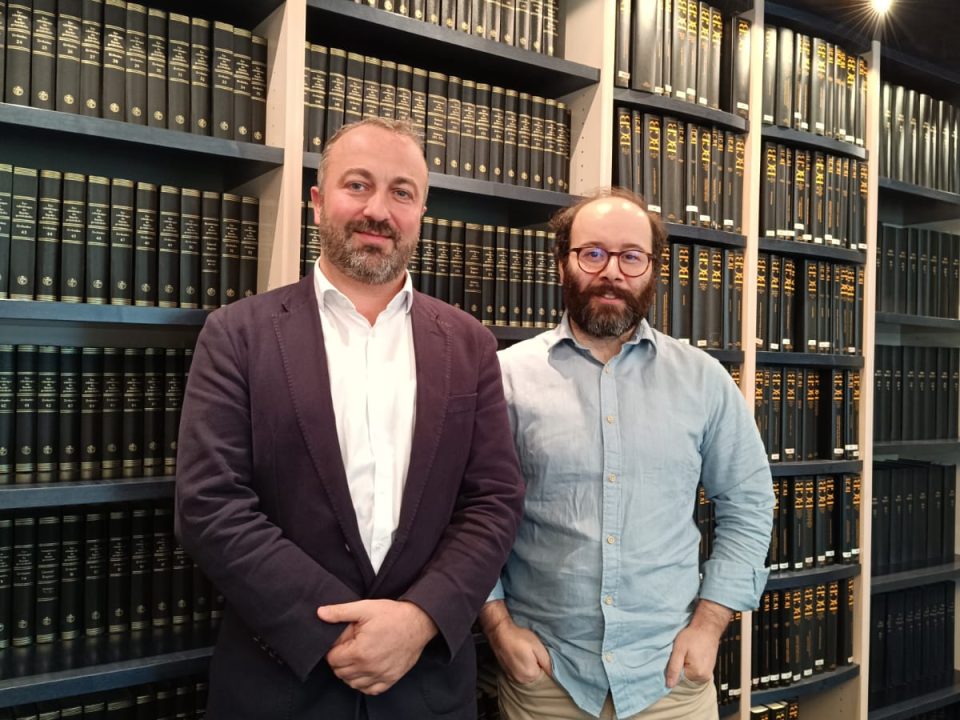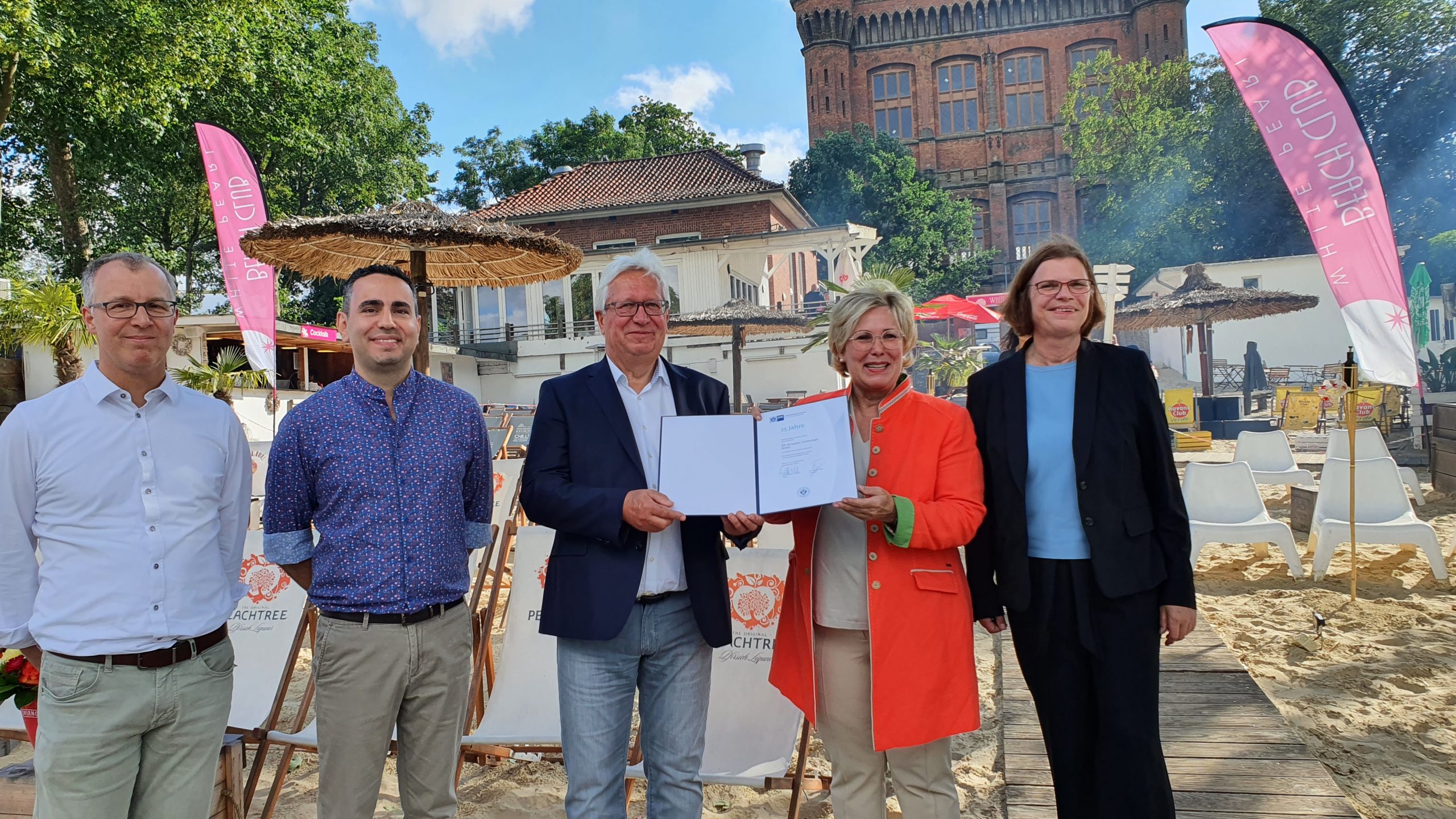
25 Years DSI Aerospace Technology
11.07.2022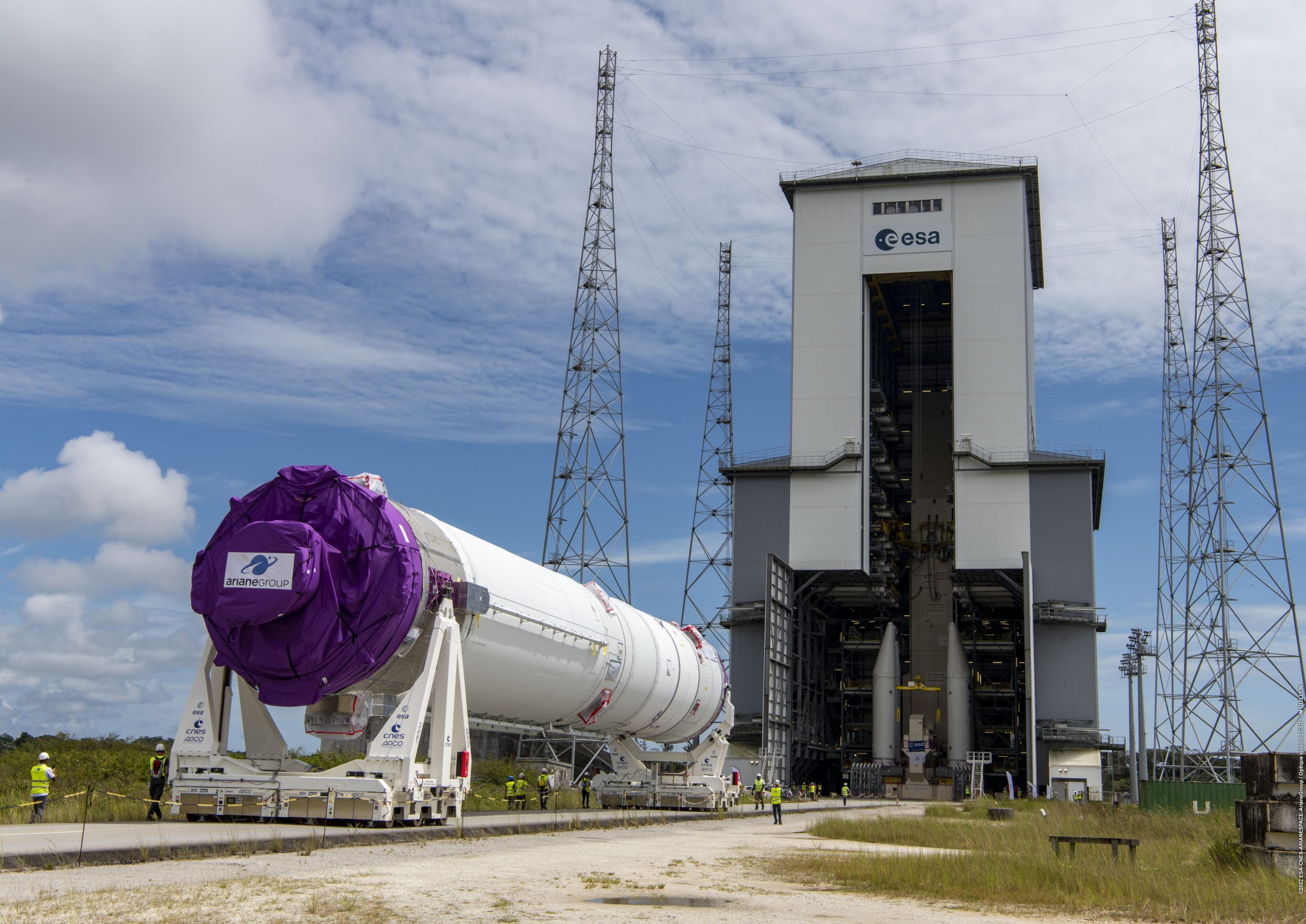
FIRST ENCOUNTER BETWEEN THE ARIANE 6 CENTRAL CORE AND LAUNCH PAD FOR COMBINED TESTS
13.07.2022Based in Bremen and the surrounding area, Trilitec GmbH develops sensors for industrial and agriculture industries. The basic idea goes by the name “Erntewächter” and is intended to effectively prevent accidents caused by metal parts, stones or animals in the field. Find out more about how the idea came about, what successes the young startup has celebrated, and what founder, Benjamin Littau, expects from his time as an ESA BIC Northern Germany incubatee.
How did you come up with the idea for the Erntewächter?
Benjamin Littau: Totally by accident. I was a guest at a big party and got into a conversation with a group of farmers. They had heard that I was doing research in the field of measurement and sensor technology and asked if I had an idea for solving a problem that is as old as agriculture itself: During harvest, machinery drives into the field practically blind and accidents happen often, which sometimes costs a lot of money. From then on, I couldn’t let go of the topic.
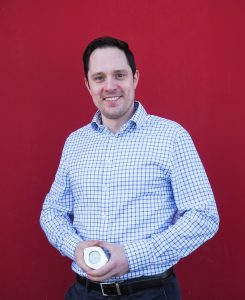
Benjamin Littau, Founder of Trilitec (©ESA BIC Northern Germany)
So, without that encounter, you might have never founded a company?
I would have, but not quite as fast. I had found the field of measurement technology incredibly exciting for a long time and had already thought about a few startup ideas after my first research experiences, but up until then, nothing had really stuck. Right from the start of that small conversation at a party, something felt right and everything fell into place. The result: only two years later and we are a team of eight people, our technology is in demand and is constantly being further developed.
What makes you different from the competition?
Previous solutions from the agriculture sector did not offer all-around protection because they only detected magnetic metals, for example. The Trilitec sensor works with electromagnetic waves in the millimetre range, and can therefore detect metals as well as glass, plastic, stones and even wild animals. If the system attached to the front of the machine detects a foreign object, it warns you with both an acoustic and visual signal.
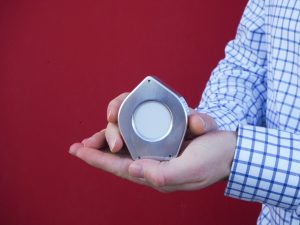
The Erntewächter sensor (© ESA BIC Northern Germany )
Who or what helped you with the implementation of your idea?
Ultimately, the EXIST Project helped get the ball rolling in 2019. Accompanied by Prof. Dr.-Ing. Martin Schneider, an expert in high-frequency technology at the University of Bremen, we started implementing the idea of the “Erntewächter” as part of the funded project. It was founded in autumn that same year. It was a great success, even if we are now going in a different direction from what we initially had.
Does that mean the idea for “Erntewächter” will be put away?
Exactly, because while we were developing this, further areas of application and ideas for future developments arose. Currently our focus is more on solutions for industrial production, such as sensors that scan the properties of all non-conductive materials. For example, the sensor can measure whether a mattress being manufactured corresponds to the planned degree of firmness. There are endless possibilities for customization in this direction. Contrary to what we initially thought, we have now moved away from the idea of a complete solution. Instead, we act as experts for sensor technology and integrate our sensors into production processes and various machinery. We therefore rely on partnerships with machine manufacturers.
What has been your greatest achievement since founding your startup?
We won the main prize in 2020 at the nationwide startup competition “Digital Innovations of the BMWI”. We were one of six teams. In general, it’s also the positive feedback we receive, the rapid success as well as the constantly expanding possibilities.
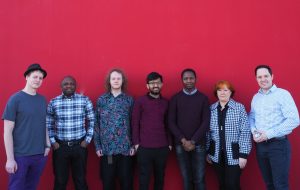
Trilitec Team (©ESA BIC Northern Germany)
And – your biggest lesson?
Make things easy! In my experience, there’s no ideal moment to turn an idea into a reality. If the idea sounds good, then start. During the process itself, the initial results can lead to new directions, things are discarded, new beginnings are made, and risky experiments are sometimes carried out. In this way, you can achieve a lot more in a shorter time than if you were to focus on setting up and securing theories.
What exactly do you want to achieve in the coming weeks and months?
Our sensor is ready for series production, but what’s missing is the declaration of conformity and receipt of the CE mark. A partnership that will integrate our technology into a running production line is already in the works. It’s important that we also collect further experience, information and data. Last but not least, and this is our idea for the ESA BIC incubation programme, we would like to find out to what extent satellite technology can help us collect extensive data from the field for the Erntewächter, therefore making our technology even more reliable.
For more information on Trilitec:
https://www.linkedin.com/company/trilitec-gmbh/
https://www.facebook.com/erntewaechter
About ESA BIC Northern Germany
The Incubation Centre of the European Space Agency in Northern Germany (ESA BIC Northern Germany) is headquartered jointly with the Bremen aeronautics and space industries association AviaSpace Bremen at the BITZ, the largest innovation and technology centre for high-tech companies and startups in Bremen. The ESA BIC Northern Germany brings new startup opportunities to the region and thus strengthens the aeronautics and space sector in the German federal state of Bremen. AviaSpace Bremen supports the incubatees with its network, public relations work and targeted coaching not only during the incubation period, but also afterwards as alumni. Starthaus is the central point of contact in the Bremen startup ecosystem and supports the startups on all issues relating to business development and financing. The ESA BIC Northern Germany is managed by Anwendungszentrum GmbH Oberpfaffenhofen (AZO), an international networking and branding company for the European space programmes that also manages ESA BIC Bavaria with three locations in southern Germany.
Since 2021, ESA BIC Northern Germany has also been offering its service to space-related startups in Schleswig-Holstein. The Technikzentrum Lübeck with GATEWAY49, AviaSpace Bremen and AZO jointly operate this extension of ESA BIC Northern Germany. There are also plans to extend ESA BIC Northern Germany to the northern German federal states of Hamburg, Lower Saxony, Mecklenburg-Western Pomerania and Berlin-Brandenburg.





